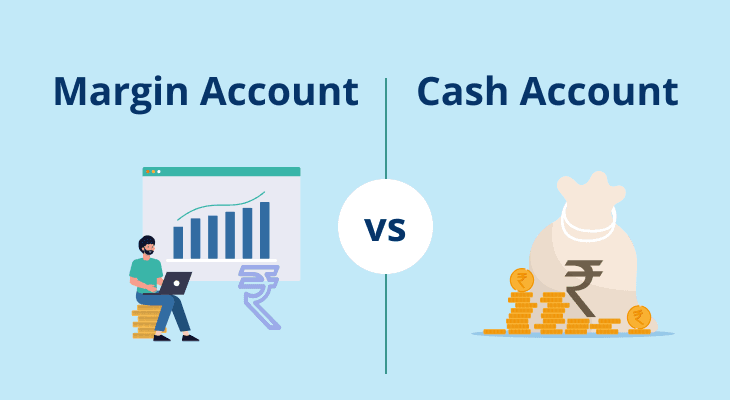
How to Calculate Brokerage in the Share Market?
When you buy or sell shares through a stock exchange, there are quite a few fees and charges that you would have to pay for every transaction. Among the many different charges, brokerage is by far the most significant. Therefore, it is important to learn how to calculate brokerage in the share market to make informed decisions.
Brokerage is basically a fee that stockbrokers charge for enabling you to place trades on the stock exchange through their trading portal. Depending on the stockbroker with whom you’re associated, you might have to either pay brokerage as a percentage of the total trade value or as a flat-rate fee for every successful trade.
Brokerage is payable only on successfully executed trades. If you have any pending or unexecuted trades in your order book, then you won’t have to pay any brokerage on these transactions, until after they’re executed. Also, brokerage is payable on both buy and sell orders on delivery and intraday trades.
Ways to Calculate Brokerage in Share Market
Calculating brokerage for any given trade is exceptionally easy and takes only a few minutes. Here’s a quick look at how you can do it manually.
Brokerage as a percentage
Many stockbrokers, typically full-service brokers, levy brokerage as a percentage of the total trade value. Depending on the broker, brokerage can range anywhere from 0.05% to 0.5% per trade.
Let’s take up an example to see how you can calculate brokerage under percentage fee model.
Say you want to purchase 100 shares of Reliance Industries Limited. The current share price is Rs. 2,400 per share. Assuming a brokerage of 0.05%, the total brokerage payable comes to be Rs. 120 (100 * Rs. 2,400 * 0.05%).
Now, assume the stock price rises to Rs. 2,500 per share on the same day. You wish to sell your shares for a profit of Rs. 100. Here, the brokerage you would have to pay comes out to be Rs. 125 (100 * Rs. 2,500 * 0.05%).
The total brokerage payable for this intraday trade would be Rs. 245 (Rs 120 for the buy order and Rs. 125 for the sell order). This fee would be deducted from the profit of Rs. 10,000 (Rs. 100 * 100 shares) leaving you with a net profit of Rs. 9,755.
Brokerage as a fixed fee per trade
Let us now calculate how brokerage will be calculated on a fixed fee per trade model.
Assume you want to purchase 100 shares of Tata Motors Ltd., currently trading at Rs. 400 per share. Your stock broker charges a flat fee of Rs. 20 per every successful trade. So, irrespective of the trade value, the total brokerage payable on the buy transaction is only Rs. 20.
When you sell these 100 shares of Tata Motors Ltd., you will have to again pay a brokerage of Rs. 20 for the trade. So, in this case, the total brokerage payable comes to Rs. 40 (Rs. 20 + Rs. 20). There is a difference of nearly 16% between fixed fee brokerage and percentage brokerage model, which only widens as the number of trades increase.
Factors Affecting Brokerage Fees:
The calculation of brokerage depends on the following factors:
Buy/Sell Price
The price at which you purchase or sell a single security unit is one of the primary criteria that determines brokerage. The brokerage is directly linked to this price.
Transaction Volume
The volume of your transactions is another important aspect that affects brokerage, whether it is determined manually or with the use of a brokerage calculator. An increase in the brokerage amounts is typically the outcome of increasing transaction volumes. However, some brokers might reduce the percentage commission for investors who trade in large quantities or bulk.
Broker Type
Choosing the broker that levies less brokerage will definitely help you save on Brokerage. With m.Stock demat account, you can invest/trade at Zero Brokerage on equity delivery, mutual funds and IPOs.
Conclusion
This should give you more clarity on how to calculate brokerage in the share market. Before you place a trade, it is always a good idea to ensure that you know what the brokerage for the trade is likely to be. While flat fee per trade is the better option compared to percentage brokerage.
m.Stock offers zero brokerage on equity delivery, mutual funds and IPOs. With m.Stock, you benefit from superior technology and 25 years of global plus 16 years of Indian expertise. Calculate your humongous savings with m.Stock and make the smarter choice today!
FAQ
Apart from brokerages, do I have to pay any other charges?
Yes. In addition to the brokerage, you would also have to pay other charges like GST, Securities Transaction Tax, SEBI turnover fees, and stamp duty charges, among others.
Which is better - flat rate brokerage or percentage-based brokerage?
Flat-rate brokerage may be better since the fee is fixed and doesn’t vary depending on the trade value. Also, you get to save quite a lot on brokerage, especially if you make high-value trades quite often. But the best option is zero brokerage on equity delivery, mutual funds and IPOs with m.Stock.
Are there any brokerage plans where I don’t have to pay any fee per trade?
Yes, Mirae Asset’s m.Stock is leading the broking revolution in India with its zero brokerage proposition. You pay zero brokerage across equity delivery, mutual funds and IPOs.
Is the brokerage refundable?
No. The brokerage is a non-refundable fee.
Is brokerage only applicable for the cash segment?
Brokerage is applicable for all the segments like derivatives (F&O), currency, and commodities except equity delivery.
Can you change your brokerage plan from fixed to a percentage basis or vice versa?
Yes. Some stock brokers allow you to switch brokerage plans. To get more information on this, you can always get in touch with your stock broker.
Is brokerage applicable only on purchase transactions?
No. Brokerage is applicable on both purchase and sale transactions


